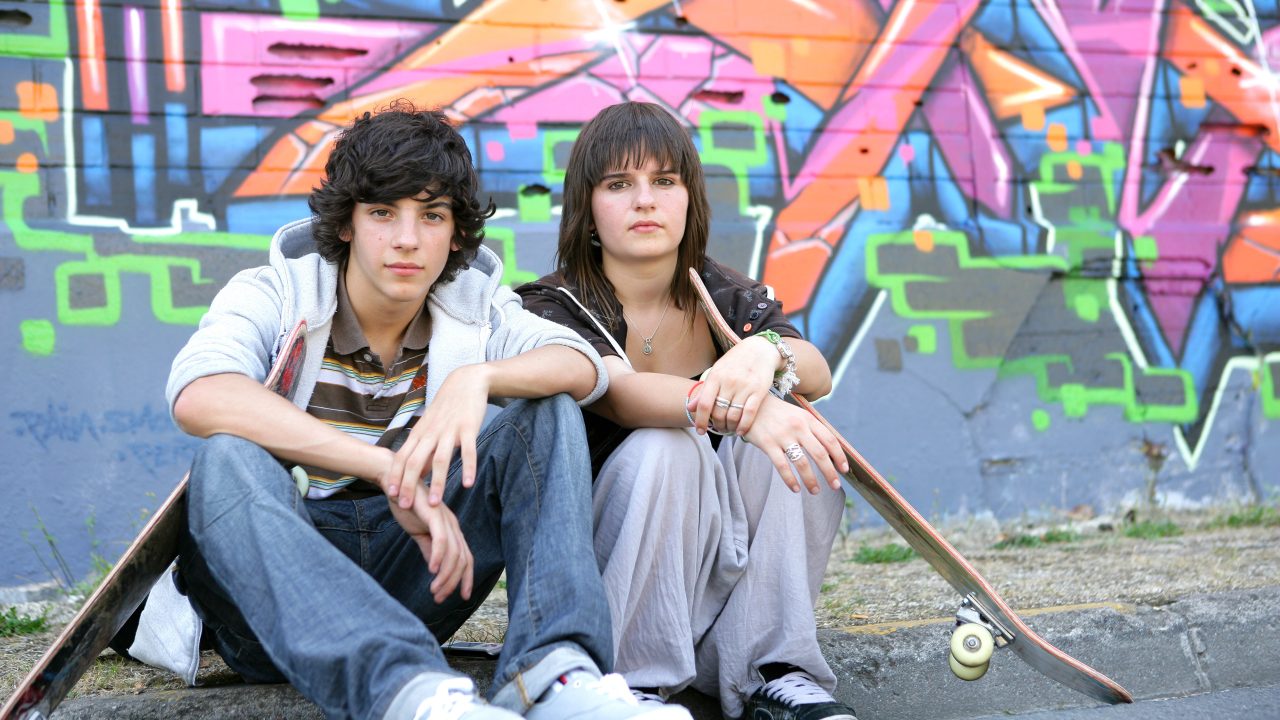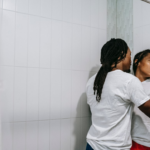by Frank Pauc
This first appeared in Frank’s blog on October 2, 2022. It is republished here with the author’s permission.
_______________________
I got an award many years ago. I still have it. I found it lying at the bottom of my dresser drawer buried under a layer of old t-shirts. I guess I could hang up somewhere, maybe in the basement next to the water heater. The award is from Walker’s Point Youth and Family Center, and it was given to me for my work with the center’s Family Support and Empowerment Program (aka the Nurturing Program). I don’t remember how long I volunteered at Walker’s Point. The award was presented to me in 2010 for seventeen years of service, but I was still with the organization for several years after I got the plaque. I was involved with the Nurturing Program for a really long time.
The Nurturing Program was an odd sort of project. It was designed to educate families with troubled teenagers. The program brought several families together for meetings every week for about three months. There was always a team of four volunteer facilitators and one lead facilitator to run the program. The volunteers came from a variety of backgrounds, and the lead facilitator had some kind of social work experience. There was a curriculum for the program that, over time, changed and evolved. As facilitators, we were teachers, and we were also leaders who refereed group discussions. The program was never boring.
We used a rather loose definition for the term “family.” The people who came to us did not usually fit the traditional family structure (a dad, a mom, 2.5 kids). Back in the ’90s, we had a lesbian couple raising a teenage boy. That was pretty wild for those days. We had all different combinations of adults and children staying in the same home. We agreed that a family was simply a group of people living together and loving each other.
It was often difficult to recruit families to join the program. The families had to straddle a fine line. They had to hurt enough to want help solving their family issues, but they also needed to function well enough to show up for the meetings. We seldom got families who considered themselves to be okay. Why come to a program if everything is going smoothly? We generally played host to families that were on the ragged edge of despair. Some of them could barely keep things together. Their lives were filled with chaos and confusion, but somehow, they joined us almost every week. The family members who managed to make it through the program were people who loved each other and had not given up hope that things in their homes could be better. They were strong.
We tried to teach skills during each session. We discussed things like how to communicate without screaming and yelling (or hitting). We talked about feelings. We talked about values. We talked about building trust. We explained how to set up family rules, and then follow them. Some of the stuff seemed extremely basic, but for many people, it was all new. I learned a lot even as I was instructing the family members.
The Nurturing Program often turned off prospective participants because it sounded touchy-feely. It was really hard to get men to get involved. As facilitators, we tried to welcome and encourage families, but the program was by no means warm and fuzzy. We encouraged family members to be open and honest, and by God, they were. We provided a safe environment where parents and their teens could say what they really meant. Often, a parent would look at their child and tell them, probably for the first time, that they were really scared for their safety. A teen might tell his parent that he just wanted to be heard, nothing more than that. People got very, very real.
I was usually the only male facilitator. I was usually also the only one with a military background. The women tended to be comforting and soothing with the participants, and some folks responded well to that. I wasn’t soothing. I was always brutally honest, and sometimes that worked. Different people needed different approaches.
I got sucked into the drama. It was impossible for me to remain aloof when people were opening their hearts to me. The parents, especially, once they let down their guard, spoke frankly about their fears and their pain. They wanted to do the right thing by their kids, and it was all turning to shit. Some of the adults I wanted to hug. Some I wanted to slap.
The kids are the ones who got to me. Yeah, there were some punks in the program, the kinds of young people that can really push your buttons. There were kids who acted tough, probably because they never had an adult to love and protect them. There were boys and girls in the groups who had grown up far too soon. However, there were innocents there too. I remember one boy, barely an adolescent, who seldom spoke in a group. I asked him about his father. He gave me a blank stare and said, “I have never met my dad. He doesn’t want to know me.”
I wept.
I often wondered if we did any good. Can you change a life in twelve sessions? Probably not. I got to the point where I decided that I was just planting seeds. Maybe I couldn’t fix a particular family, but I could perhaps leave an idea with them. Maybe the next generation would have it just a bit easier. All the years I worked with these suffering souls, I did it on faith. Only once did I ever get any feedback from a family. It was years after I had worked with them, and they thanked me for the help. That kept me going.
In my own family, we made it through the teenage years relatively intact. After that, all hell broke loose. One son went to war and stabbed a man to death in Iraq. Another of my children went to prison. The third got into some bad stuff, but I never really found what it was. I made it clear to him that I don’t ever need to know.
I am convinced that all those years of working with families that were struggling with horrendous problems prepared me, at least a little, to deal with my own crises. The fact is that these families, with all their dysfunction, also had some hard-earned wisdom. They taught me how to survive and overcome.
I don’t need the plaque. I never did. I got what I needed.
Buy Me A Coffee
The Havok Journal seeks to serve as a voice of the Veteran and First Responder communities through a focus on current affairs and articles of interest to the public in general, and the veteran community in particular. We strive to offer timely, current, and informative content, with the occasional piece focused on entertainment. We are continually expanding and striving to improve the readers’ experience.
© 2024 The Havok Journal
The Havok Journal welcomes re-posting of our original content as long as it is done in compliance with our Terms of Use.



